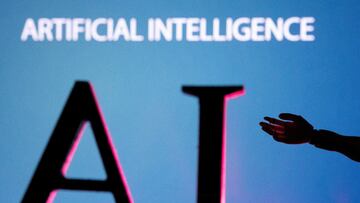What are the risks of Artificial Intelligence? Dangers of AI technology
AI is progressing more rapidly than it was once thought it could causing those voicing concerns over the risks it poses to speak louder, with more urgency.

The field of artificial intelligence has been making faster progress than once thought possible. While the AI technology holds promise to help tackle pressing challenges mankind faces, it also poses “profound risks to society and humanity,” according to a 2023 open letter from the Future of Life. It called for an immediate six-month pause on training AI systems more powerful than Open AI’s GPT-4.
Added to those concerns was another open letter just two months later by OpenAI CEO Sam Altman and Google DeepMind CEO Demis Hassabis that warned the misuse of Artificial Intelligence could lead to the extinction of the human race. It called on governments to establish “guardrails” that help regulate its use.
You may also be interested in: This is what Bill Gates says about how AI will change our lives in the next 5 years
What are the risks of Artificial Intelligence?
There are several ways in which AI technology could pose a danger even if it doesn’t reach a breakaway level where it is self-aware, or sentient. At that point it would be able to act beyond the control of humanity and potentially in a malicious manner. Built in, an online community for startups and tech companies, looked in detail at 12 Dangers of AI.
While AI can be used to perform certain tasks more efficient, there are concerns that AI-powered systems could automate away particular jobs, far beyond mundane and repetative tasks. This could become even more pronounced if these systems are integrated into robots leaving hundreds of millions of people without employment unless they are upskilled.
Artificial intelligence will destroy humankind. No, wait — it will usher in a new age of human flourishing! Guest host @adamdavidson sorts through the big claims about A.I.’s future by exploring its past and present — and whether it has a sense of humor. https://t.co/HcCl0i7dRG
— Freakonomics (@Freakonomics) August 24, 2023
There is also the risk of bias in AI systems as they are taught by humans, so depending on the data that is fed into the training program what the AI learns can be skewed. This could affect who companies hire if the AI-powered system basis the ideal candidate using analyses of face and voice traits which could go beyond merely issues of gender and race. This could help further exacerbate socioeconomic inequality.
One profound concern that AI is already being used for is deepfakes. AI-powered systems can create nearly perfect fake images and videos as well as imitations of people’s voices. These could be used to cause social unrest or instability in the markets through creating “statements that at first glance appear plausible but are unfounded or betray biases,” Pope Francis warned. Additionally, ethics and goodwill among people could be harmed.
Related stories
Darker uses of AI technology that presents a danger are its use in the surveillance of members of society through facial recognition and data collection. And even scarier are AI-powered autonomous weapons, which may not be bound by rules of engagement or even hacked by malicious actors.
And then there is the potential for the loss of human influence as society becomes over-reliant on AI technology. There may be a loss of empathy and social skills through reduced peer communication. It could also result in a reduction in human creativity, emotional expression and human intelligence.



Complete your personal details to comment